- The Final Stint
One Ferrari win down, one (or more?) to go
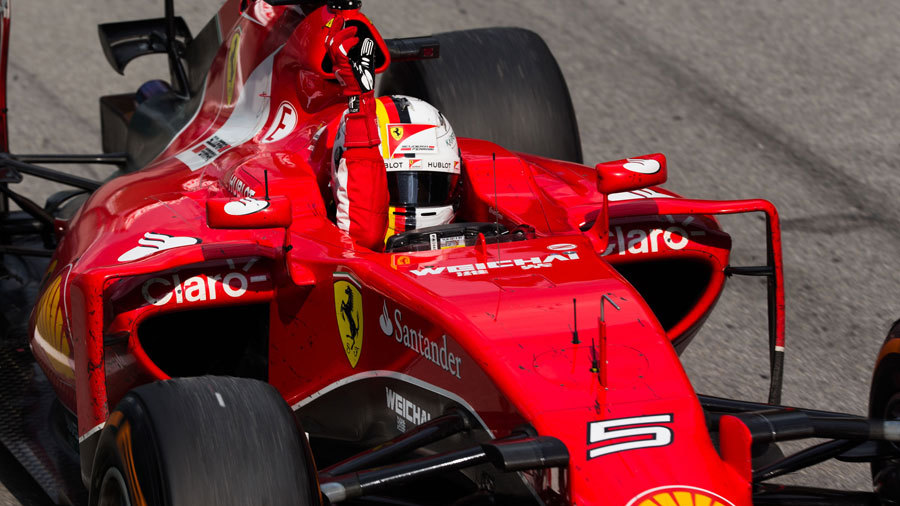
Much more than just a lucky win
One win down, one to go. That was the understated reaction from Ferrari team principal Maurizio Arrivabene following Sunday's surprise victory at the Malaysian Grand Prix. It was in reference to his pre-season target of two victories in 2015 and was followed up by Ferrari's mantra this year: "We keep our feet on the ground". Technical director James Allison went on to explain the reasons why Ferrari is not getting carried away with Sunday's result, but that should not take away from the Scuderia's achievements over the winter.
Maranello has made a huge step forward this year and the SF15-T should be seen as the first proper Ferrari of the new turbo era. In the build up to last year, Ferrari got its approach to the new regulations wrong by making too many sacrifices with its power unit in the hope of chasing aerodynamic gains that failed to pay off. It paid the price throughout 2014, quickly realising it had taken the wrong direction but unable to make the necessary changes under the in-season freeze on engine development. Its mistakes festered throughout the summer months and by the end of the year several very high-profile members of the team paid with their jobs. But while it may have looked like Ferrari was stagnating throughout 2014 from the outside, it was in fact rejuvenating.
Even before Stefano Domenicali stood down following the intense disappointment of the Bahrain Grand Prix, the seeds were sown for a revival. From early January 2014 the team laid down the foundations for this year's car and the operational return of its updated wind tunnel helped realise the new direction. Rather than sacrificing power for packaging as it had done with its first stab at the new regulations, Ferrari started to box clever and adopted a new - albeit risky - cooling layout. Allison described the new direction of his engine and chassis departments as "courageous", for if they got it wrong the long lead time for development of engine components would have left Ferrari in a similar position to 2014. Malaysia acted as the first real proof that the new concept has paid off, as Ferrari arrived in the heat of Sepang without the need to hack great holes in the rear end of the SF15-T and still ran with a clear power advantage over last year.
More power results in better fuel consumption and greater flexibility over the use of the ERS, so over the winter a significant amount of performance has been unlocked. Ferrari is confident there is plenty more to come and, with three more engine tokens to spend over the remainder of the season, its target of two wins in 2015 is looking increasingly modest.
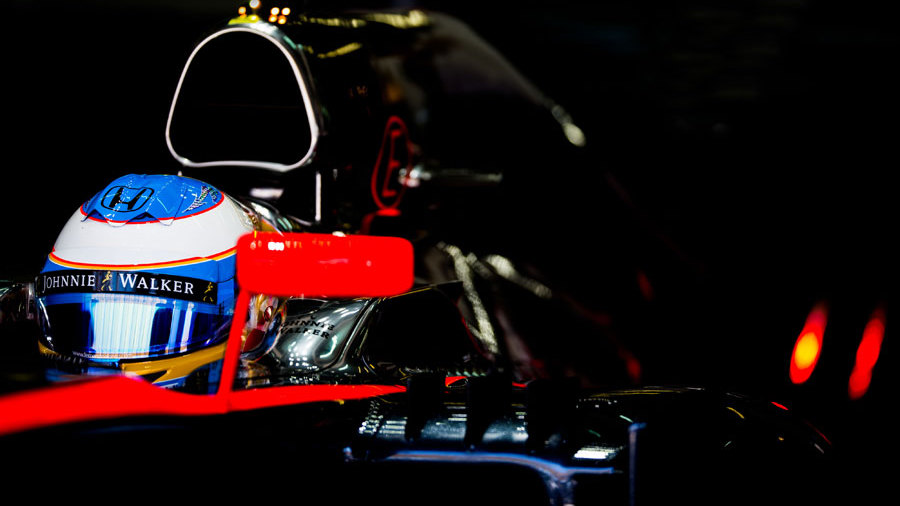
Honda's Mount Everest
In Malaysia Honda used the analogy of being halfway up a "high mountain". The positives were a believed 1.6s gain on Mercedes in the two weeks since Melbourne. The negatives were a remaining deficit of around 2.5s and being the slowest cars on the circuit in qualifying except Manor, which is running a modified 2014 car and engine. But the mood at McLaren remains optimistic - happy smiles and relaxed interviews reveal a calm we saw from the team throughout the winter, even after entire days spent in the garage. We are clearly yet to see the Honda power unit running anywhere close to full beans, with the engine manufacturer mindful of the penalties for exceeding the allotted amount of power units per driver in 2015, plus the fact this project is a slow and steady climb rather than a short sprint.
McLaren-Honda's self-confessed "very conservative" approach stays true to the statement made by Button in Barcelona when he said the team won't have a winning car at the start of the year, but could do by the end of the season. This might be hard to believe on the surface but it's also hard to escape the positive mindset of Button and Fernando Alonso when asked about the car itself. One common reaction on social media to Vettel's win in Malaysia was along the lines of "what must Alonso be thinking?" - referring to his move away from Ferrari to McLaren ahead of 2015. The Spaniard did not move to win the title in 2015 - he did so because he believed McLaren-Honda offered him a better chance of a third world title in the next few years. It's now up to Honda to show enough progress to convince him over the course of the next few races he hasn't made the biggest mistake of his career.
NS
Hello !!!!
Interesting days ahead !! Looking forward! Very happy !! #fortunateGrateful #letta pic.twitter.com/6GGy2nyQhR
— Fernando Alonso (@alo_oficial) March 30, 2015
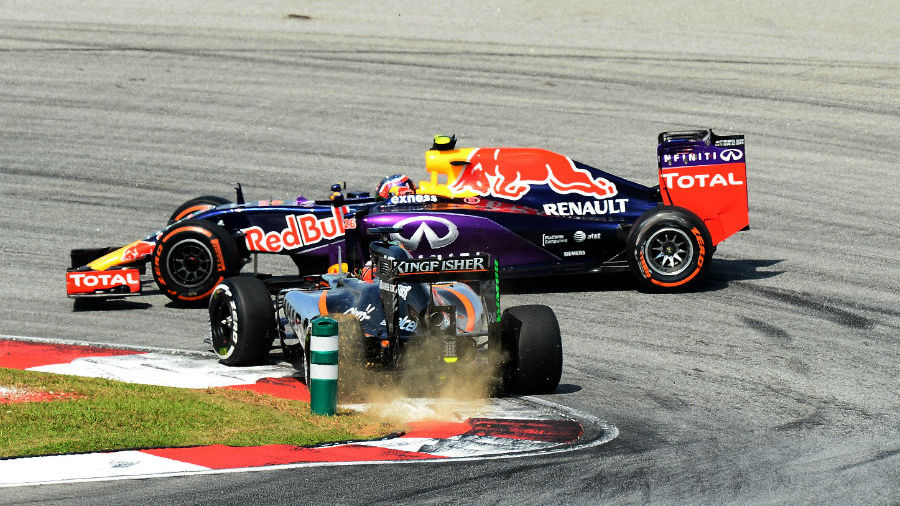
The point of penalties
The introduction of driver stewards in F1 has been a godsend for the sport, usually allowing men with racing experience to have a say on the incidents on track and the subsequent penalties handed out. One of the few drawbacks is that different stewards inevitably bring with them different opinions, meaning a level of consistency in decisions can be hard to find. Motorbikes legend Mick Doohan was the driver steward in Malaysia, a step away from the traditional norm of hiring an ex-driver with F1 experience.
Nico Hulkenberg and Sergio Perez both received harsh penalties in Malaysia, both on track and to their licences. Hulkenberg turned Red Bull's Daniil Kvyat the wrong way when the pair made contact coming through Turn 2, though the Russian said after the race: "It was a racing incident. From my point of view, if he wouldn't do this, we both would gain. He decided to go for it, so I don't have anything against him." Perez's was in a similar vein, spinning Romain Grosjean around when the Lotus driver took an optimistic lunge around the outside of Turn 13. Both were hit with ten-second penalties in the race, as well as having two points added to their licences. Both have the right to feel aggrieved.
NS
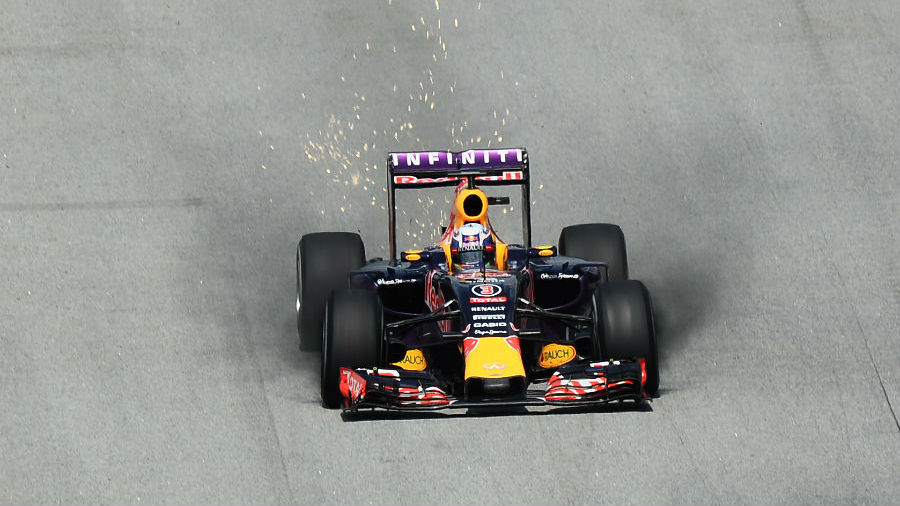
All quiet on the Red Bull front
After Australia, Red Bull threatened to quit and called for the playing field to be levelled. Toys-out-of-the-pram stuff at its finest. But during and after Malaysia, the mood at the team seemed slightly chastened. The head of Renault Sport F1 calling Adrian Newey a liar made for a frosty atmosphere heading into Malaysia, as did Cyril Abiteboul's press conference appearance alongside Christian Horner. Maybe it all had an impact on the Red Bull boss, because he noticeably was at pains not to throw the team's engine partner under the bus for the second straight week.
Red Bull was uncompetitive in the race again, not only beaten by a Toro Rosso team running exactly the same Renault power unit, but with both drivers clearly struggling with brakes throughout. After the race, Horner admitted some of the team's problems may lie closer to home: "We changed brake supplier this year. We just need to understand how we got into the situation we have, and engineer our way out of it. They've been tricky to manage all weekend, but I think it took us by surprise that we got into as much issue as we did, especially when we were in dirty air. But we need to learn from that and do a better job in China."
NS
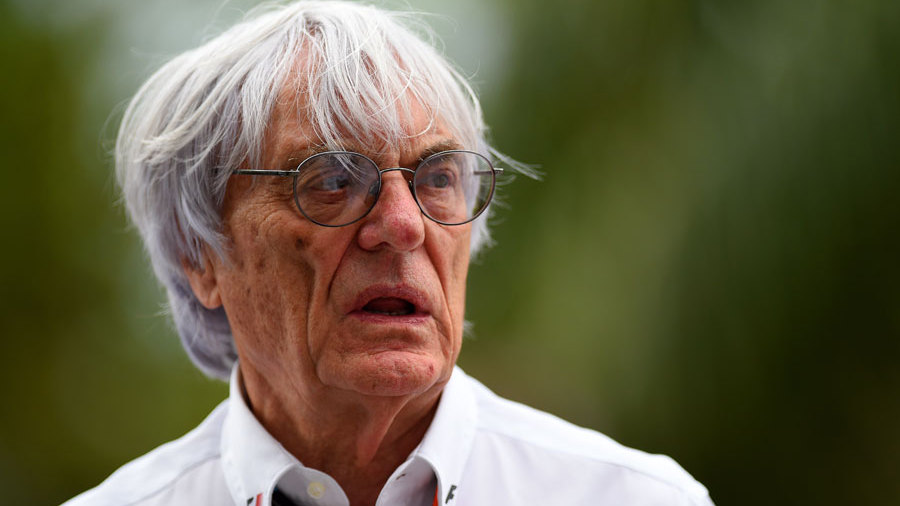
F1 health check
The Malaysian Grand Prix is proof of Formula One's ability to surprise even when it appears to be at its most predictable. The Bahrain Grand Prix gave the kickstart the sport needed last year and this time round it came a race earlier with Sebastian Vettel's victory in Sepang. But just as it was wrong to write off the sport following the Australian Grand Prix, it is also not true that its problems have been solved by Ferrari's victory in Malaysia. That much was obvious during the Friday press conference in which the most successful engine manufacturer of the last five years threatened to leave the sport and the ever-present gap between the haves and have nots was laid bare ... again.
Renault's future is far from clear, but it does not take a genius to figure out what it would mean for Red Bull if it quit. The drinks manufacturer may not be happy with Renault at the moment, but they would be worse off - or out of the sport altogether - were Renault to leave at the end of its contract in 2016. It would most likely have to patch the gap with a customer engine supply from one of its main rivals until a new works deal arrived, and even then it is very unlikely a new manufacturer could come in and hope to run competitively immediately (see Honda's struggle). Either way Red Bull needs to solve its problems with Renault if it is to challenge for championships again in the near future.
But while the top of the tree is starting to wobble in some fairly turbulent winds, the rotting roots at the bottom are still threatening to upend the sport as we know it. The plight of Lotus, Force India and Sauber has not changed substantially since last year and the loss of one or more of those teams would cause big issues. An exchange between Red Bull's Christian Horner and Force India's Bob Fernley showed just how different the sport looks when viewed from the top and the bottom, and an interview with Bernie Ecclestone a day later suggests nothing is going to change any time soon. A Ferrari win is always good for Formula One, but claiming it has saved the sport is wishful thinking.
LE